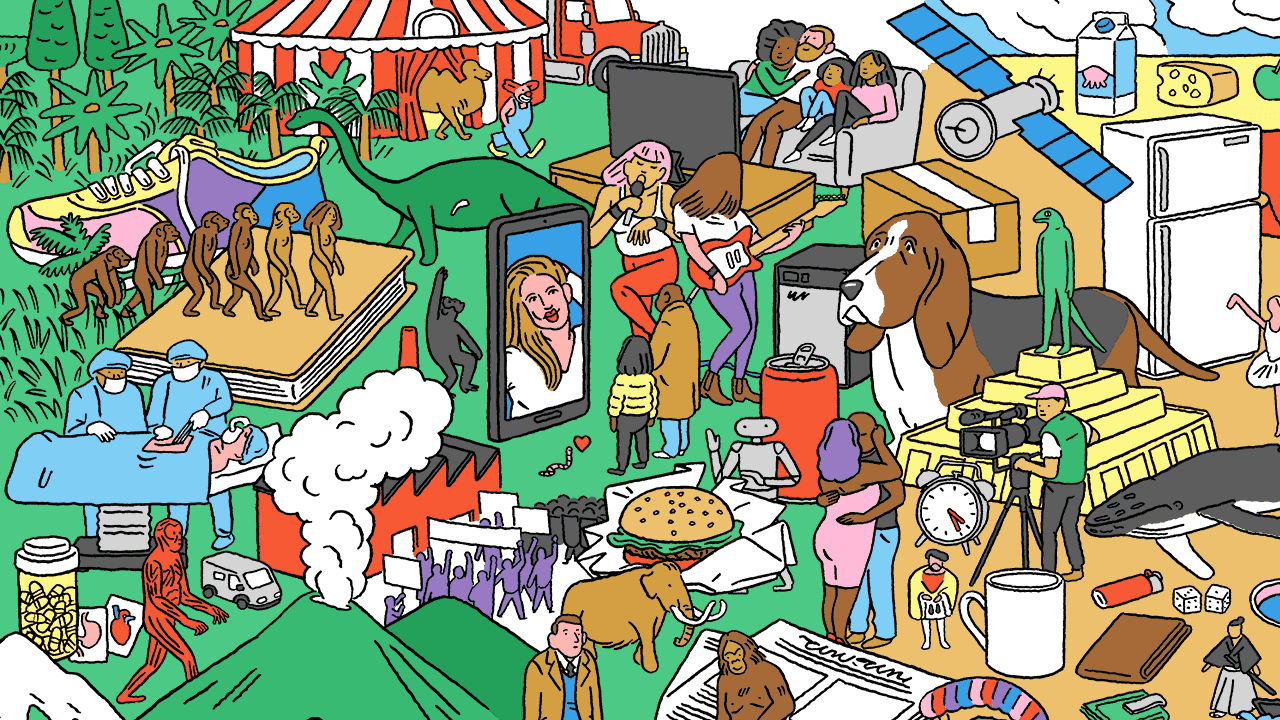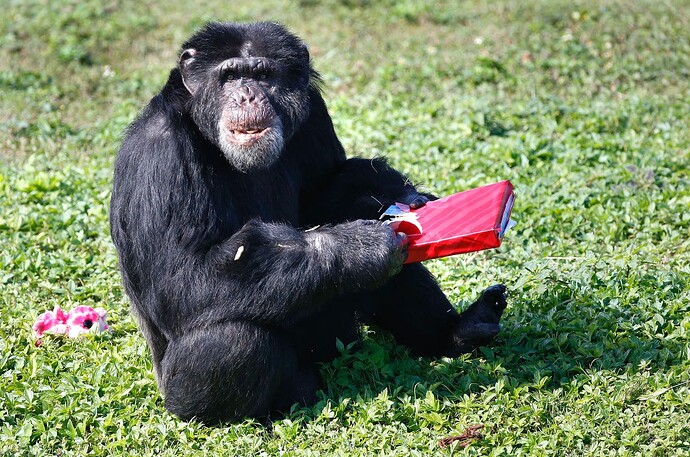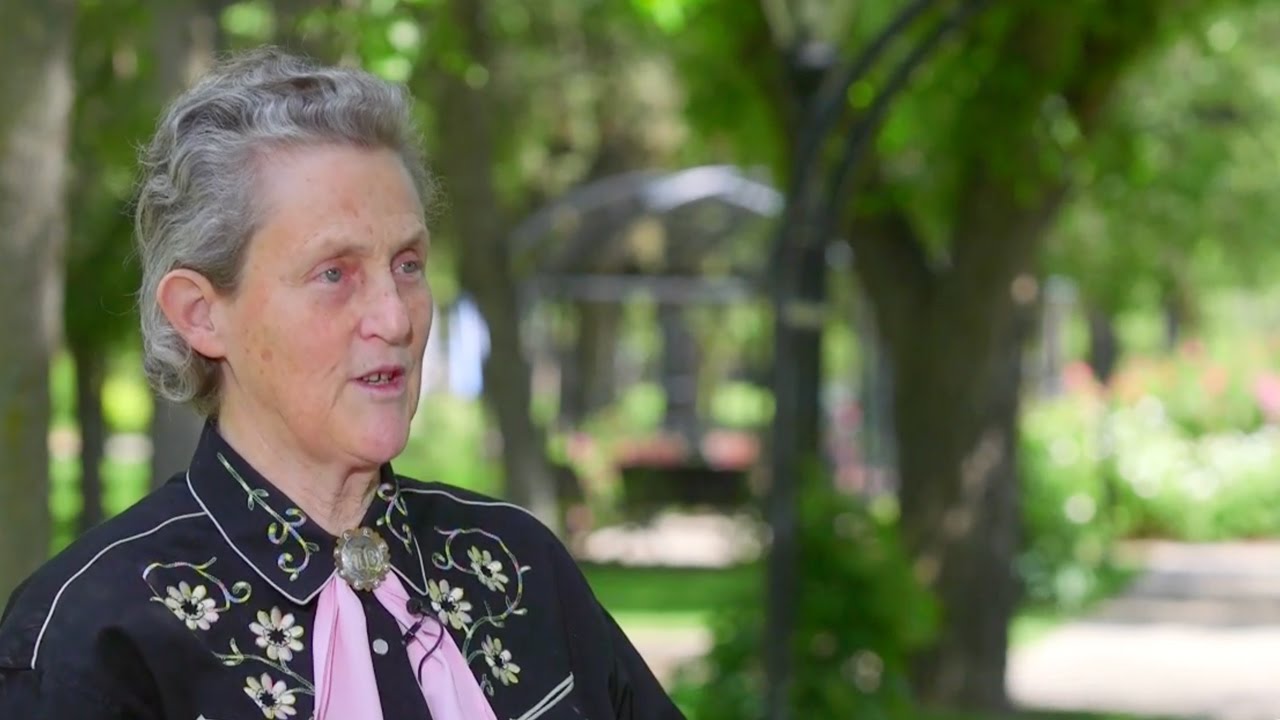The human evolutionary path seems to be a fairly unique one in many respects; humans are weird and wonderful animals in many ways!  In particular, we seem strongly adapted to cooked food, so much so that diets of entirely raw food seem fairly damaging to human health. Rather than an omnivore perhaps a cooked food omnivore would be more accurate label for us.
In particular, we seem strongly adapted to cooked food, so much so that diets of entirely raw food seem fairly damaging to human health. Rather than an omnivore perhaps a cooked food omnivore would be more accurate label for us.
The archaeological evidence seems to indicate that ancient humans started to eat a lot more meat and seafood from about 3 million years ago, probably having a diet resembling modern chimpanzees prior to that, which has some, if not a great deal, of meat and eggs etc. A chimpanzee’s diet isn’t very energy dense. It literally has to spend half of its day chewing!
Stone tools could be used to cut up and pound and tenderize vegetables, meat, tubers etc. resulting in less chewing and easier digestion. Then later humans figured out how to make fire (probably about a million years ago). Cooked food was even easier to digest.
Human teeth, jaw muscles, length of digestive tract have all been getting smaller and smaller over all this time. This all freed up a large amount of calories otherwise spent in digestion, and human brains are very calorie intensive (about 20% of calories are burned up by the brain). A popular theory is that a switch to more calorie- and nutrient-rich diet with more meat and seafood and help from tools, and later cooking with fire, freed up time otherwise spent chewing and energy for the development of large brains.
Ancient humans were eating meat and seafood from quite early on. That’s plenty of time for us to be quite well adapted to this. It doesn’t mean we have to eat meat. There are good ethical reasons not to. Though probably care needs to be taken with strict veganism (B12 supplementation and care to get enough iron etc.: humans absorb heme iron far more readily than non-heme iron). While there are many vegetarian castes in India, AFAIK there are no vegan ones.
My own country, Ireland, has the highest incidence in the world (about 97%) of the variant of the LCT gene that allows adults to digest milk and dairy products without lactose intolerance. This gene variant is common in many parts of Europe, particularly NW Europe. Cattle have been raised here for several thousand years (one of the most well-known and oldest Irish mythological tales here, while all sounding very heroic, is essentially a glorified cattle raid!  ). A few thousand years is quite short in evolutionary terms. Therefore, having this gene variant must have been particularly advantageous and the ability to easily digest milk and dairy must have been heavily selected for.
). A few thousand years is quite short in evolutionary terms. Therefore, having this gene variant must have been particularly advantageous and the ability to easily digest milk and dairy must have been heavily selected for.




 In particular, we seem strongly adapted to cooked food, so much so that diets of entirely raw food seem fairly damaging to human health. Rather than an omnivore perhaps a cooked food omnivore would be more accurate label for us.
In particular, we seem strongly adapted to cooked food, so much so that diets of entirely raw food seem fairly damaging to human health. Rather than an omnivore perhaps a cooked food omnivore would be more accurate label for us.